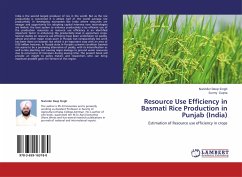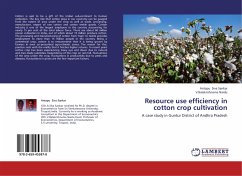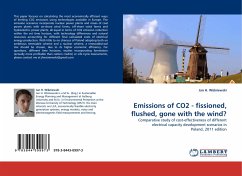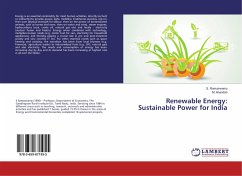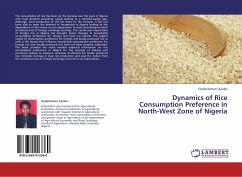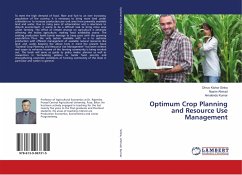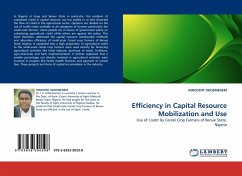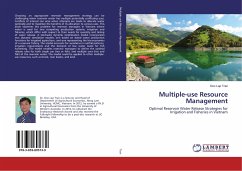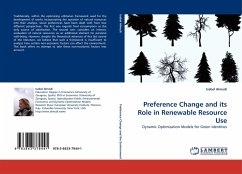
Preference Change and its Role in Renewable Resource Use
Dynamic Optimization Models for Green Identities
Versandkostenfrei!
Versandfertig in 6-10 Tagen
39,99 €
inkl. MwSt.

PAYBACK Punkte
20 °P sammeln!
Traditionally, within the optimizing utilitarian framework used for the development of works incorporating the question of natural resources into their analysis, social preferences have been dealt with from two different perspectives. The first one regards final consumption as the only source of satisfaction. The second one, considers an intrinsic evaluation of natural resources as an additional element for personal well-being. However, despite the theoretical advances of this last strand of the literature, we believe that such a framework is insufficient to analyze how certain non-economic fa...
Traditionally, within the optimizing utilitarian framework used for the development of works incorporating the question of natural resources into their analysis, social preferences have been dealt with from two different perspectives. The first one regards final consumption as the only source of satisfaction. The second one, considers an intrinsic evaluation of natural resources as an additional element for personal well-being. However, despite the theoretical advances of this last strand of the literature, we believe that such a framework is insufficient to analyze how certain non-economic factors can affect the environment. This book offers an attempt to take these non-economic factors into account.



